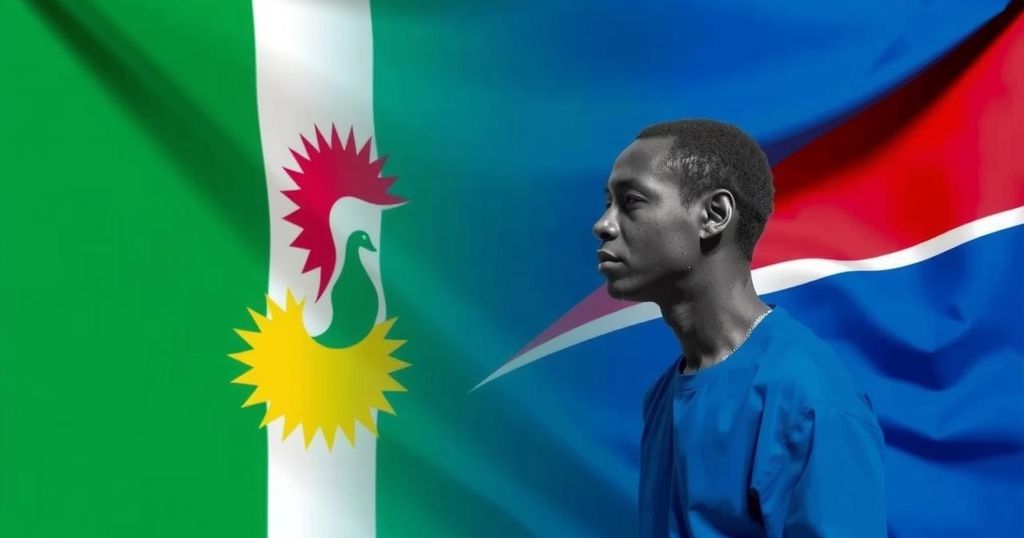Namibia Elections: A Shift in Power Dynamics Across Africa

Namibia’s elections showcase significant political shifts, as the ruling Swapo party experiences diminished power amid rising public dissent against governmental corruption and economic hardship. This trend reflects a larger pattern across sub-Saharan Africa, where numerous ruling parties have lost significant ground to opposition coalitions in recent elections, highlighting a growing demand for accountability and reform.
The recent elections in Namibia have signified a pivotal moment in the political landscape of Africa, highlighting a broader trend of declining support for incumbent ruling parties. While Namibia’s ruling party, Swapo, maintained its hold on power for over three decades, it suffered notable electoral setbacks, particularly in the parliamentary election. Despite retaining the presidency with the election of Netumbo Nandi-Ndaitwah, the first female leader, Swapo’s parliamentary representation dwindled significantly. This electoral performance aligns with a worrying trend observed across sub-Saharan Africa, where many incumbents have faced substantial challenges, reflecting growing public dissatisfaction due to economic hardship and increasing corruption awareness.
The elections in multiple African nations have revealed the potential for substantial political shifts. In Botswana, the long-dominant Botswana Democratic Party (BDP) faced a historic defeat, reducing its parliamentary presence from 38 to just four seats. Mauritius also experienced a drastic change in power dynamics, with the ruling coalition receiving only 27% of the vote, culminating in a sweeping opposition victory. Furthermore, Senegal demonstrated the power of grassroots mobilization as opposition leaders, previously imprisoned, capitalized on public discontent and prevailed against the incumbent.
Various factors have contributed to this transformative moment in African politics. Rising economic difficulties, notably high food and fuel prices, and deeply-rooted public intolerance towards governmental corruption have galvanized opposition parties. Additionally, effective mobilization techniques and coalitions among opposition entities have further enhanced their electoral prospects. Observers note that this shift signifies not only a reaction to poor governance but also suggests an emerging resilience in African democracies, countering the global trend towards authoritarianism.
Amidst these developments, electoral resilience is becoming apparent, reflecting a commitment among citizens to pursue accountability from their leaders. While some governments have managed to retain power, their grip has notably weakened, as evidenced by the African National Congress in South Africa, which fell below the 50% threshold for the first time since 1994. Notably, the year 2024 could see further challenges to incumbents, with potential shifts anticipated in Ghana and Malawi.
In summary, the electoral outcomes across sub-Saharan Africa in 2023 reveal a significant recalibration of power dynamics. The trend of opposition parties gaining ground against long-established regimes signals a pressing demand for accountability and reform, showcasing the tenacity of democratic ideals despite challenges. As this phenomenon unfolds, it promises to reshape the political landscape on the continent well into the future.
The article addresses the recent electoral outcomes in Namibia and across sub-Saharan Africa, illustrating a significant decline in support for ruling parties and vulnerability to opposition parties. Over the past year, several governments have faced major losses during elections, culminating in historic victories for opposition coalitions, specific examples being Botswana, Mauritius, and Senegal. The gradual erosion of citizen trust in governing bodies, exacerbated by economic hardships and corruption allegations, lays a foundation for increased political engagement and opposition strength in the region.
In conclusion, the electoral shifts observed in 2023 represent a critical moment for democracy in sub-Saharan Africa, illustrating a notable decline in long-standing political dominance by governing parties. Economic challenges, reinforced public sentiment against corruption, and effective opposition mobilization underscore the evolving political landscape. As opposition parties gain momentum and citizens demand greater accountability, the potential for transformative change remains pronounced, indicating a promising trajectory for democratic governance across the continent.
Original Source: www.bbc.com






